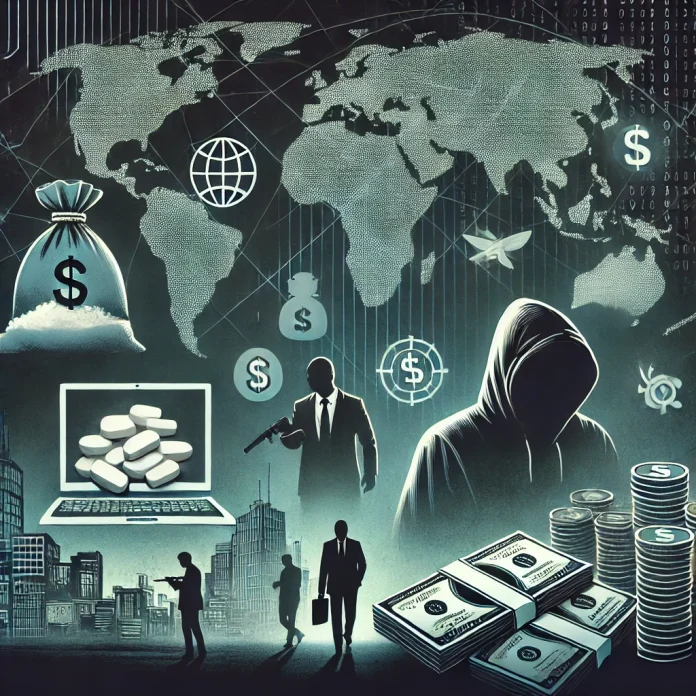– Mohammad Atharulla Shareef
Crime doesn’t pay, yet illegal enterprises thrive. From drug trafficking to cyber scams, criminal revenue keeps rising, forming a massive underground economy.
Illegal drug markets are no longer hidden. The dark web and cryptocurrency have made access easy. In 2023, drug trafficking earned $783 billion, becoming the second-largest criminal revenue source. Organized crime isn’t limited to narcotics; it also deals in firearms, modern slavery, and immigration crimes.
Authorities struggle to keep up. In Chikkamagaluru, police arrested two people smuggling marijuana. They seized 10.4 kg of ganja worth ₹2 lakh—a tiny part of a vast drug trade.
Human trafficking turns people into commodities. This crime spans continents, exploiting the vulnerable for forced labor and sexual abuse. Cybercriminals now add a digital twist. In Bengaluru, a 57-year-old woman lost ₹2 lakh to a banking scam after following an automated IVR prompt. What seemed routine became a nightmare, proving fraudsters leave no stone unturned.
Where money exists, fraud follows. In Bengaluru, authorities uncovered a ₹3,200 crore GST scam. Fraudsters created fake companies, inflated turnovers, and manipulated stocks, cheating investors. Investigators found fake invoices and bogus firms, exposing a tangled money trail. As the case unfolds, authorities seek justice, but fraud continues lurking.
Technology has given criminals new opportunities. Cybercrime, once rare, is now a billion-dollar industry. From phishing to ransomware, hackers make fast money. In Bengaluru, cyber fraudsters exploit digital transactions, finding security loopholes and human errors.
Illegal alcohol, gambling, and the flesh trade remain highly profitable. These businesses fuel corruption, bribery, and violence. Despite crackdowns, they evolve, staying ahead of law enforcement.
Corruption fuels criminal networks. Whether tax fraud, gambling, or money laundering, someone in power looks away—for a price. Bribery ensures crime thrives, making justice difficult.
Dirty money doesn’t sit still. Laundering methods include shell companies and high-stakes gambling, making tracking tough. Drug cartels use trade-based schemes, while cybercriminals launder earnings through insurance. Crime pays well, but authorities keep chasing.
Despite global crackdowns, crime adapts to new technology and legal loopholes. Governments and law enforcement struggle, but stronger regulations, international cooperation, and cyber monitoring offer hope. Until then, the underground economy thrives on greed, deception, and profit.




